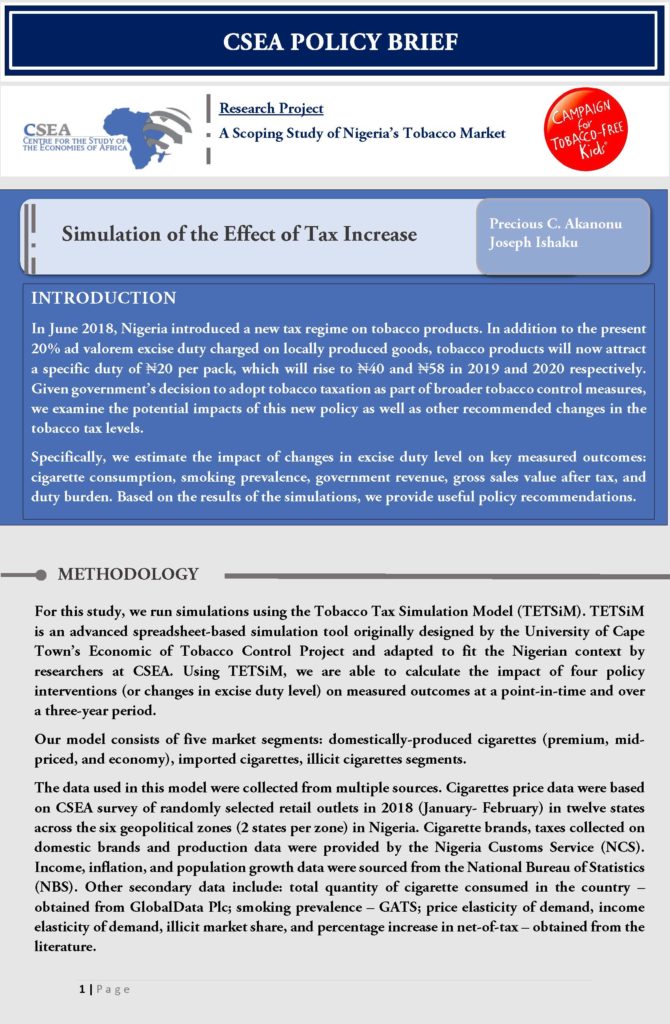In June 2018, Nigeria introduced a new tax regime on tobacco products. In addition to the present 20% ad valorem excise duty charged on locally produced goods, tobacco products will now attract a specific duty of ₦20 per pack, which will rise to ₦40 and ₦58 in 2019 and 2020 respectively. Given government’s decision to adopt tobacco taxation as part of broader tobacco control measures, we examine the potential impacts of this new policy as well as other recommended changes in the tobacco tax levels.
Policy Brief & Alerts

January 25, 2019
Simulation of the Effect of Tax Increase
In June 2018, Nigeria introduced a new tax regime on tobacco products. In addition to the present 20% ad valorem excise duty charged on locally produced goods, tobacco products will now attract a specific duty of ₦20 per pack, which will rise to ₦40 and ₦58 in 2019 and 2020 respectively. Given government’s decision to […]
Read →
Related
Nigeria Economic Update (Issue 39)
The monthly monetary survey by the CBN shows a decline in money supply for the month of August 2017, relative to July 2017. Narrow and broad money supply dropped by 4.2% and 1.5% to N9,891 billion and N21,851 billion respectively. The continuous monetary contraction witnessed over the past months may be associated with aggressive sale of treasury bills by the CBN through open market operations. This act is capable of mopping up liquidity in the economy, reduce loanable funds in the banking system, and constrain the easing of lending rates in the near term.
Nigeria Economic Update (Issue 36)
Power sector statistics
show a significant increase in power generated from August 12 to August 19,
2016. Precisely, power generated increased by 2.2 percent to 3953.6MW(a
4-month high). Increased water reserves in dams for hydro generating plants occasioned
by seasonal adjustments (rainy season), led to improved power generation.
Additionally, in a bid to further improve and sustain power generation, the
federal government received a $100 million credit facility from India.
However, consistent power supply could be jeopardized if the development is not
aided by improved distribution by DISCOs.


